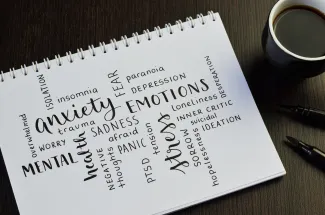
More residential care coming for children with acute mental health needs
Click play to listen to this article.
(Colorado News Connection) Colorado lawmakers are investing more than $15 million to ensure children experiencing complex behavioral challenges, including trauma, major depression, bipolar disorder and schizophrenia, get the residential-based care they need.
Colorado has faced numerous lawsuits for not providing adequate support.

Representative Mary Young, D-Greeley, said meeting the needs was a priority in the most recent session.
"When we heard that children and youth and their families were not being able to find appropriate placement, we realized that this did not reflect the values of Colorado," Young explained. "We don't want children to be neglected."
Beds for Colorado kids in crisis have frequently not been available at psychiatric facilities and families have had to go out of state for care. Many ended up sleeping on the floor in emergency rooms, county offices or detention centers. House Bill 1038 promises to more than double the number of beds for Colorado children with the most acute mental health needs.
Representative Brandi Bradley, R-Roxborough, said the new legislation also provides services to help prevent mental health challenges from developing into crises. Last year, more than a third of Colorado high schoolers experiencing major depression received no treatment, according to a recent report.
"But with this $15 million, we know that we will be able to not only staff those needs but also give kids the actual treatment that they need," Bradley emphasized. "Right now, being put in detention centers is not giving them the treatment and then we see them funneled through the justice system."
Young added the measure also provides better reimbursement for care facilities, and includes workforce development incentives for training and better wages for workers.
"We need to improve the pay in order to attract the workforce who are so critical to the implementation of these services," Young urged.

















